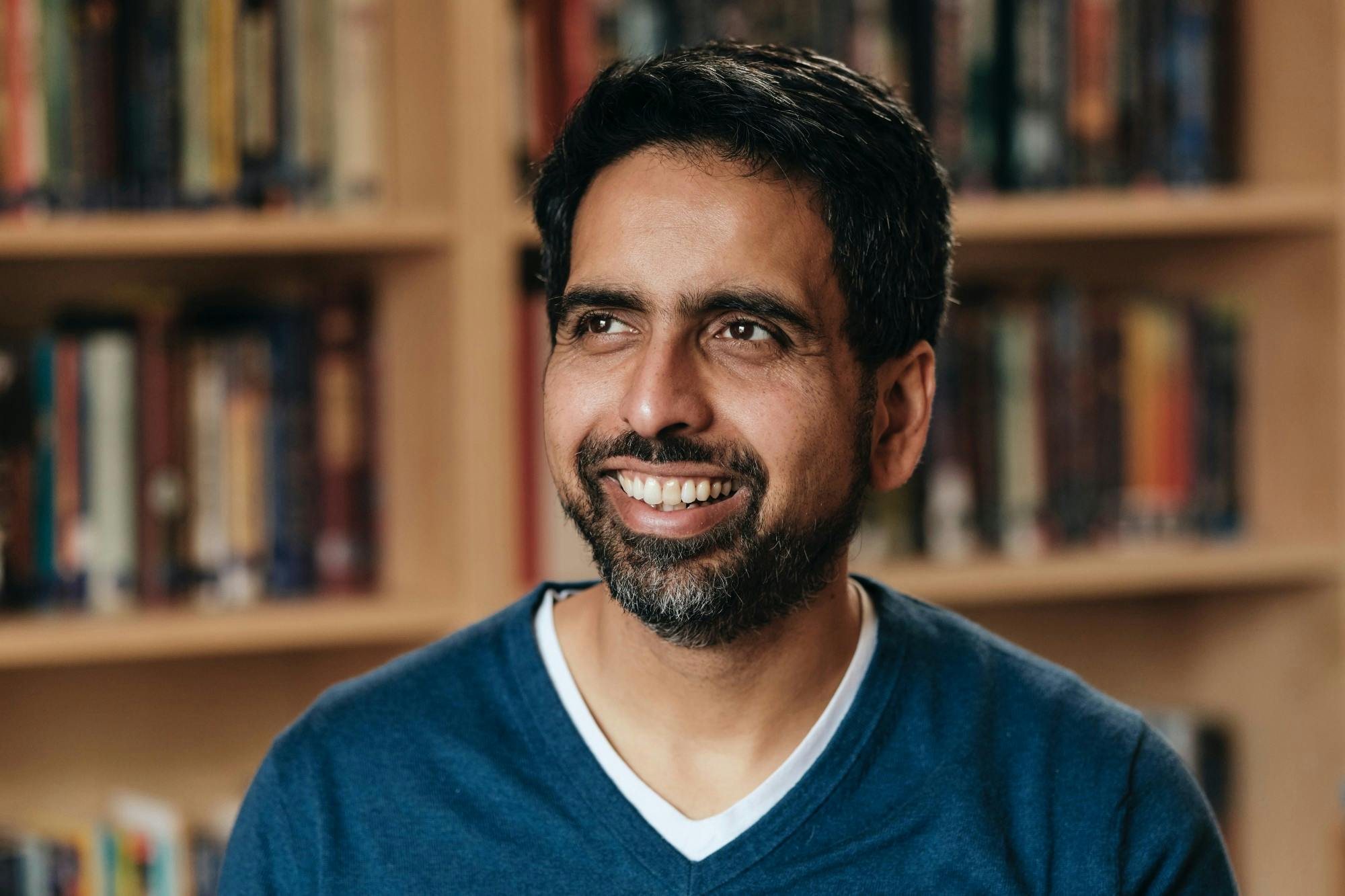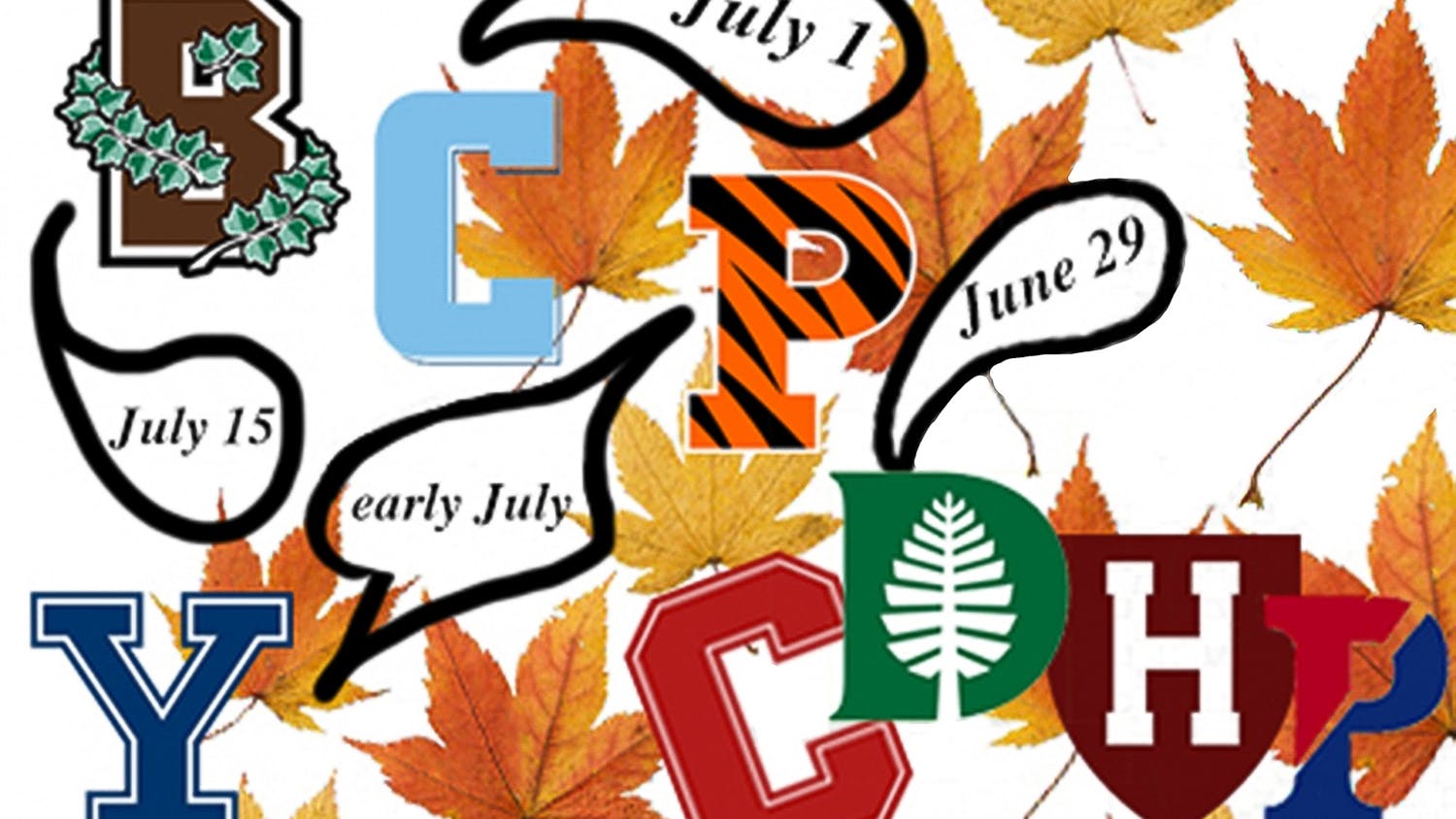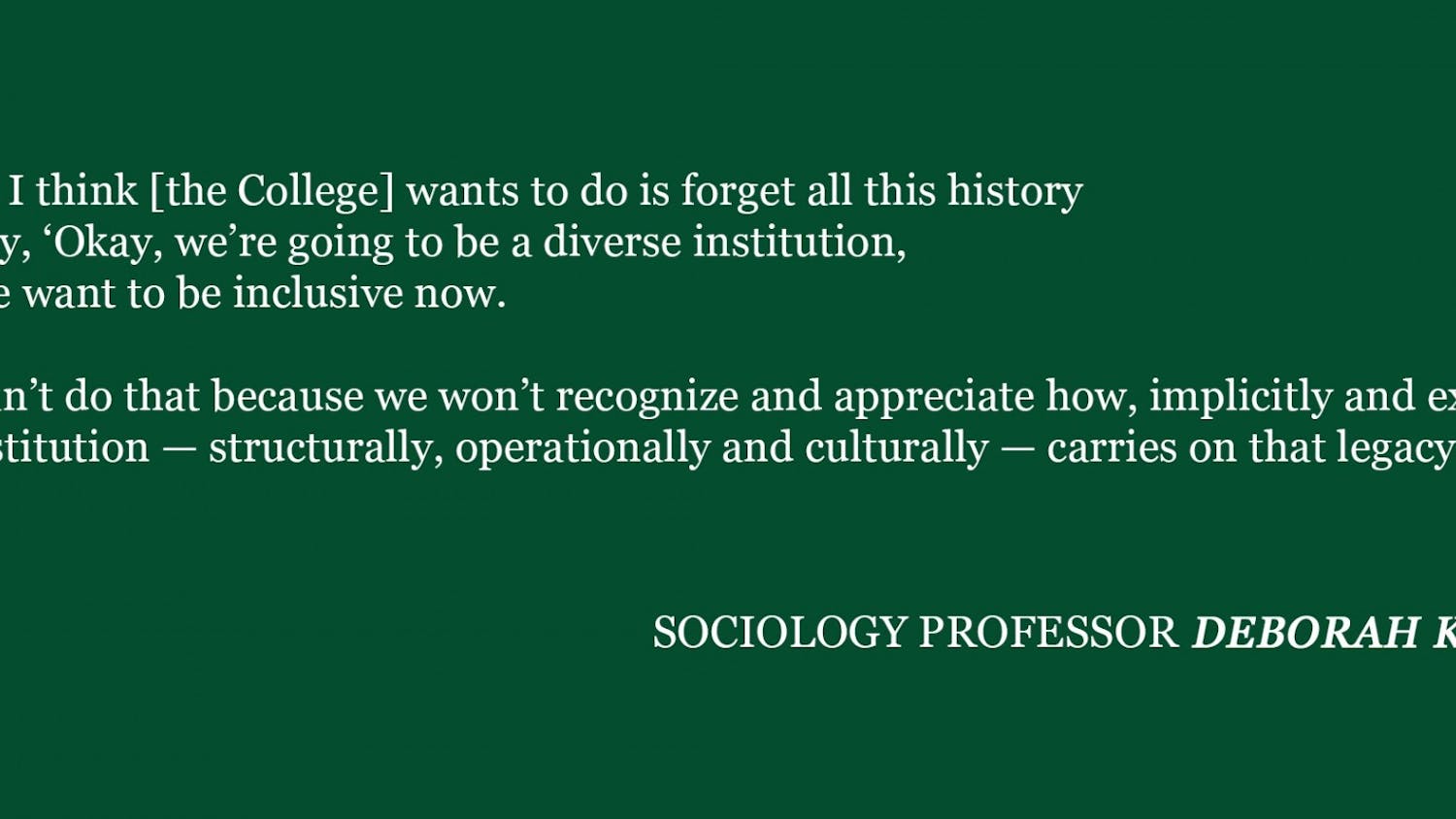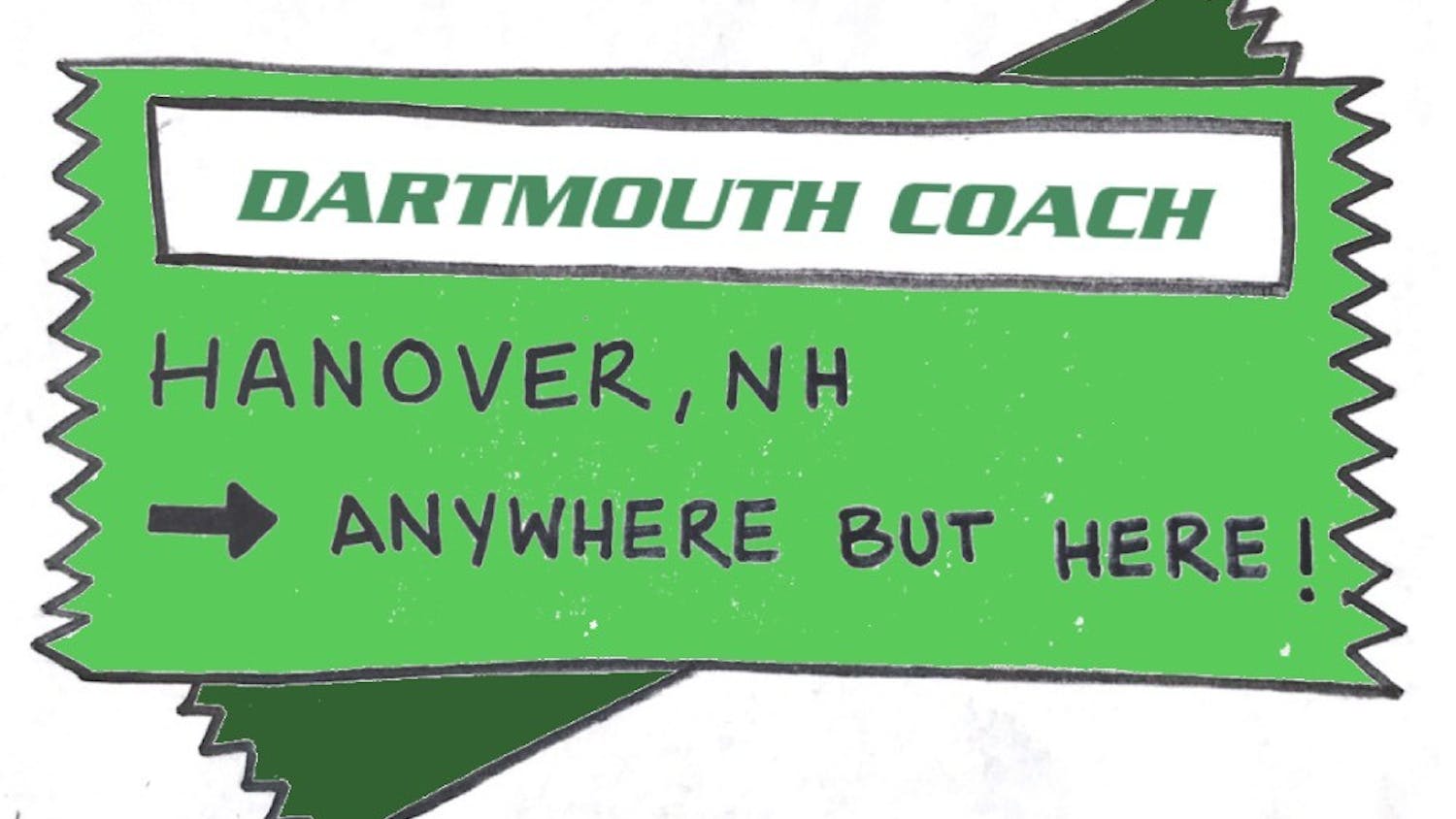Sal Khan, who will speak at this year’s remote commencement ceremony, is no stranger to connecting with others from behind a computer screen. As the founder of Khan Academy, he pioneered a widely popular online platform that offers free educational videos and exercises in topics ranging from math to chemistry to SAT prep. During the COVID-19 pandemic, schools around the world have shifted to remote learning, which has caused a spike in traffic on Khan Academy.
The Dartmouth took a walk with Khan — who prefers walking during meetings — to talk about remote learning, the state of education in the wake of COVID-19 and the value of a college degree.
Listen to the full interview here, or read on for the highlights.
What was your own undergraduate experience like, and how did it contribute to who you are today?
SK: It’s a bit of a cliche, but for me, it was a formative experience. I think what makes college college is the connections, the bonds, the interactions, the memories you form with your classmates. I think that's first and foremost what defines college, even today. I met my wife in college. I'm on a text thread right now, [and] I just realized that all the 18 people on that thread were people that I went to college with, and many of them are couples that have formed in college, and that that was 20 years ago.
So in a lot of ways, the college social circles, they still define a lot of my life. I think, at least on a monthly basis, probably on a weekly basis, I have dreams that I'm still in college. You know, [in] all the different moments of college, you're growing in some way. You're cramming for a test or you forgot to drop a class. That's a dream that I constantly have. I think it's just something that lasts.
How has Khan Academy’s role in online education changed during the COVID-19 pandemic?
SK: We could have never foreseen this situation happening, but obviously when we started seeing that it could be a possibility, we started realizing that what we had built over the last decade or so could be — in fact, and probably would be — [what] a lot of people would need to lean on when schools closed. Obviously, they would need something that's highly accessible, that covers many subjects and grades, where it's not bound by time or space, where kids can get as much practice and feedback as they need, as much instruction [and] teachers can keep track of it. So, it's one of those moments where you look left and look right and say, ‘I guess this is us.’
We saw our traffic [increase] as soon as school started closing around the world. Depending on the week, [it] was about 250 to 300 percent of normal. We've just been trying to do everything we can to keep up with that. We've been trying to put out parent and teacher webinars, and other things [like] daily schedules and learning plans just to keep everyone supported.
As you go back to school, students are going to have a huge variance in their preparedness. Frankly, that's always the case, but it's going to be that much worse this coming back to school. So we're building tools so that students can remediate what they need to know as quickly as possible to get to grade level — whatever grade level that might be — and then ways for teachers to understand where their students are and then how they can keep them learning at their own time and pace.
In March, Khan Academy’s site usage grew to 2.5 times what it was last year. How has Khan Academy responded to its increased usership?
SK: We like the fact that we're able to have even more impact. Usership is, about half of it is because of more students, and the other half is because the students [who] are coming are using it more. So we were serving about 20 million students a month — now it's 30 million — and those students are spending 60 to 70 percent more time than they were before. So, before we had about 30 million learning minutes per day on Khan Academy. Now we're seeing closer to 80 million learning minutes per day on Khan Academy.
We're obviously first and foremost making sure that the site stays up and running. We have a great engineering team, so that's actually gone fairly well. This is a moment where it's kind of our duty as a not-for-profit in this space to be able to step up, and it's also a moment where there's a lot of open-mindedness to some of the things we've been talking about for many, many years, like personal learning, mastery learning, this notion that learning should not be bound by time and space. So, we're trying to push as fast as we can, while we're in this kind of historical moment to maybe have some lasting positive changes for the whole system as we get out of this moment.
You have plenty of experience with learning online, and what works and what doesn’t work. What advice do you have for students learning remotely right now?
SK: In general, whether you're learning remotely or not, it's all about active learning. That’s why on something like Khan Academy, a lot of people associate us with the videos, but we've invested a lot — in fact most of our resources — on the exercise portion, where kids get as much practice as they need.
And even with things like videos, the ideal is to not watch it passively. Just the notion that you're clicking on it is some ways an active thing, versus just showing up in a classroom and saying, ‘OK, whatever they're going to lecture today, I'm just here.’
If you're in a university lecture, you can't pause [the] professor, but the more you can try to replicate the thinking, or maybe after they've finished a proof or explain something, see if you can do it yourself, or even do some problem sets while you're there. That's how the learning sticks, and then to be able to do some spaced repetition and do it in multiple contexts, then it really builds the retention.
What's more difficult about the online learning environment is that you don't have the kind of social pressures — the positive social pressures — that you have in a physical environment. There might be ways to build some of those things. Just as when people go on diets or they're training for a marathon, they might have running partners, or there's a lot of these fitness apps where there [are] five or six people who are your partners and you hold each other accountable. Like, ‘Hey, I ran four miles today or two miles or five miles today; what did you do?’ I think you could do something similar when everyone is now learning somewhat asynchronously. It's like ‘Hey, I did my 30 minutes of math,’ [or] ‘I was able to finish my project today’ or ‘Hey, who hasn't done this by noon?’ I think things like that are gonna be valuable. I think it's all about that structure and that habit.
Do you anticipate that the rise of remote learning will have long-term impacts on the way that higher education institutions approach teaching?
SK: I think so. There's been talk, honestly, about virtual education in higher education for a while. A lot of that's been catalyzed by rising costs in higher education and people looking for alternatives … ‘The Dartmouths of the world’ were never in siege because most of the value of Dartmouth is that community that you're part of for four years and those connections and that socialization. But then it does beg the question, well, the dorms and the clubs aren't what's costing $50 to $60 thousand a year. It's something else.
I've always said that it's somewhat arbitrary that no matter what you pick to major [in], it seems to take exactly four years of classes. Clearly folks just said, ‘Let's fill up four years.’ They didn't say, ‘What do students really need to know and master, and what do they not?’ Because obviously if they did that, arguably some things you could develop in six months or a year, some things … might take six years to develop. But the reason why they did that is they viewed that four-year time period as a kind of socialization [and] development time period regardless of what academic things you need to learn. So, I think this is gonna be an interesting unbundling. And I think the Dartmouths of the world are going to be able to innovate and hopefully enhance their program, but I think [there are] a lot of schools where their in-person experience, frankly, isn't as compelling. It’s going to be harder for them to justify tuition and the many tens of thousands of dollars of debt … when you might have virtual solutions that give you the academic and the credentialing things that are a reasonable level of fidelity and obviously cost a lot less and have a lot more flexibility.
Many students expressed dissatisfaction after tuition rates remained the same despite the move to remote learning this term. Do you believe that online learning can be as effective as in-person instruction, and why do you believe it is important that Khan Academy provides lessons for free?
SK: In general, I believe in market forces. I come from a for-profit background, but I think there [are] certain parts of our society where market forces either don't work well because the decision maker, the buyer and the beneficiary are all different people, or when they do operate, they lead to outcomes that aren’t consistent with our values. And I think the two spaces where that can be true is in education and health care. It's not that there isn't a place for profit there, but generally speaking in a society, if someone wants to empower [themselves] or wants to reach their potential, they should be able to. There should be as few frictions as possible, and everyone should have kind of an equal shot at developing themselves and being able to participate.
And so that is the rationale behind Khan Academy being not-for-profit and it being free, that we want no friction for someone who really wants to improve themselves or to learn and obviously, that leads to business model or organizational model questions. Well, because of that, we have to do a lot of philanthropic revenue or other sorts of resources so that we can do this work for free.
This interview has been edited and condensed for clarity and length.




